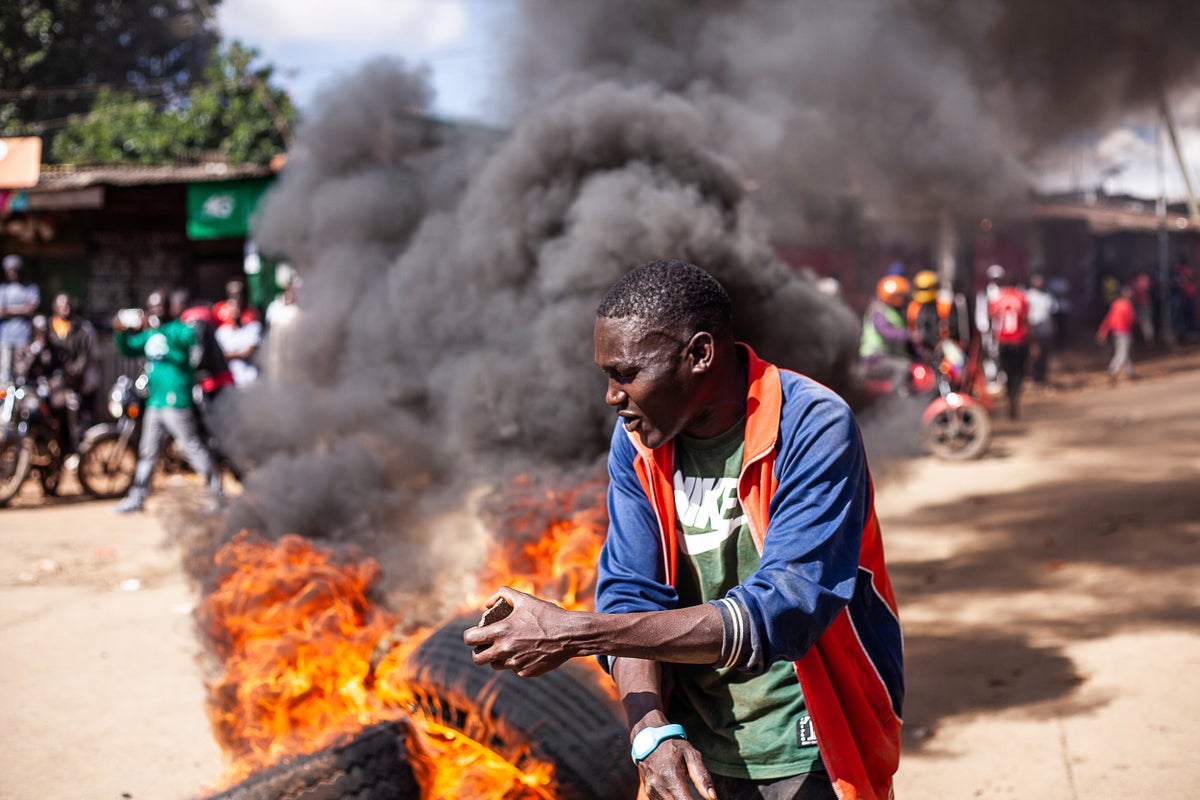
Police in Kenya are on high alert ahead of a second round of anti-government protests organized by the opposition that have been declared illegal by the government.
Police chief Japheth Koome insists that Monday’s protests are illegal but opposition leader Raila Odinga says Kenyans have a right to demonstrate.
The opposition is protesting against the rising cost of living and calling for President William Ruto's resignation saying he wasn't validly elected in last year's election.
More than a dozen civil society groups have in a joint statement expressed concern over police declaring Monday's protests illegal and urged authorities to uphold people's constitutional right to peaceful demonstrations.
Ruto over the weekend urged Odinga to face him directly and “stop terrorizing the country.”
Odinga last week said the protests would be held twice a week, on Mondays and Thursdays.
Odinga’s plan in last week’s protests was to march to the president’s offices at State House but police erected barriers to prevent public access and motorists were directed to alternative routes.
Ruto is currently out of the country visiting Germany.
Deputy President Rigathi Gachagua shared photos of himself at his office early Monday morning and urged Kenyans to report to work.
Nairobi's central business district remained calm but most businesses were closed on Monday morning due to the uncertainty over demonstrations and if there would be violence.
There was a heavy police presence within the capital and surrounding neighborhoods on Monday. Police have dispersed crowds that gathered in Kibera and Mathare, poor areas of Nairobi.
Local media have been warned against broadcasting Monday’s protests. The Communication Authority of Kenya said the airing of last week’s demonstrations caused panic, incited the public and threatened peace.
The High Court, however, ruled that the authority’s notice was unconstitutional and upheld media freedom in response to a petition filed by a civil society group, a journalists’ union and the Law Society.
In 2018, Kenya's main television stations were taken off air for one week by the regulator after airing Odinga’s “mock” swearing in ceremony where he claimed to be the people’s president.” Odinga had rejected the 2017 election results and organized anti-government protests.
Police last week threatened to take action against those pictured hurling stones at officers.
They released photos of people who they said were wanted for crimes committed during the protests but were called out by local media outlets for using old photos and others that were taken during protests in Burundi.







